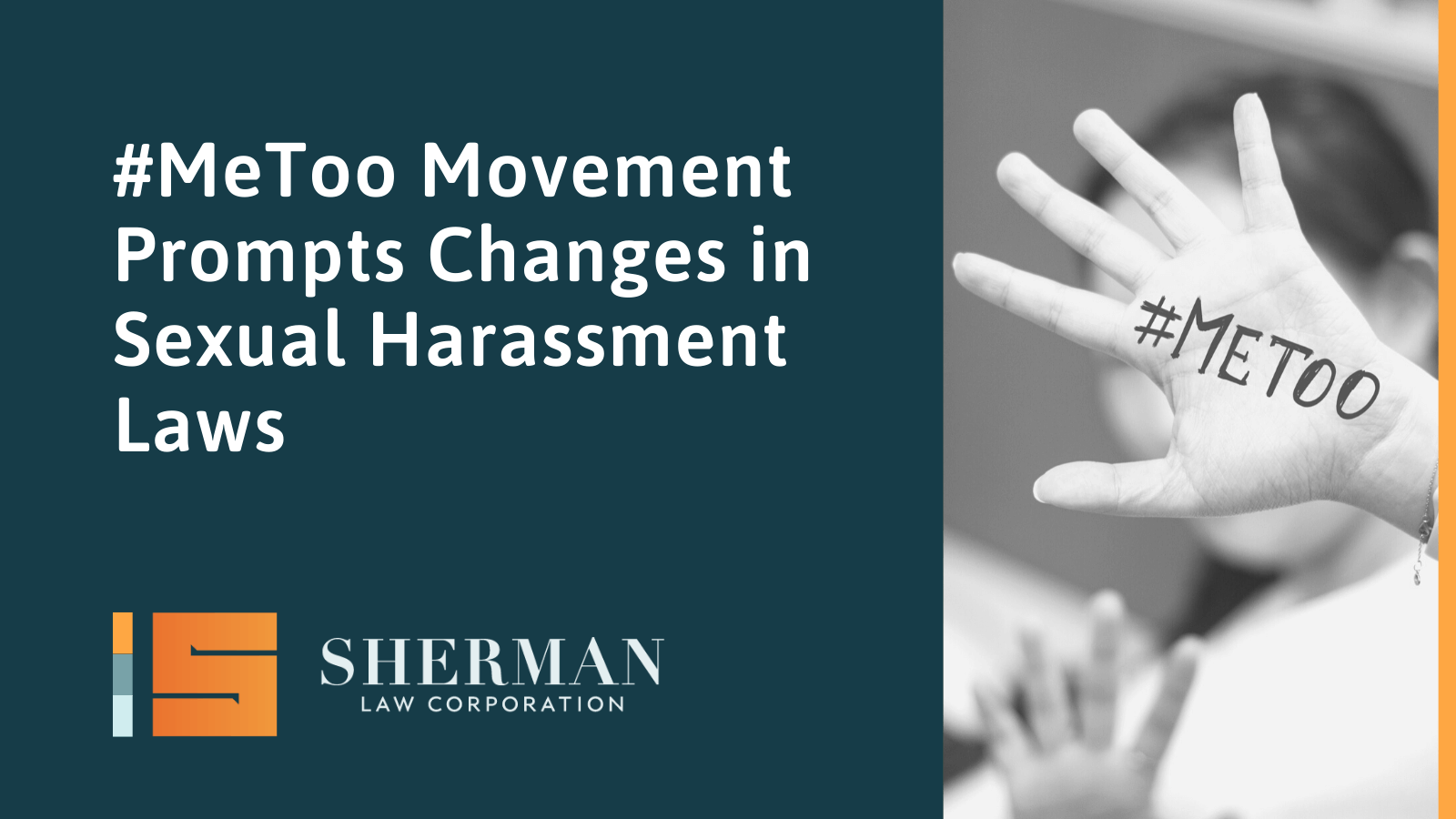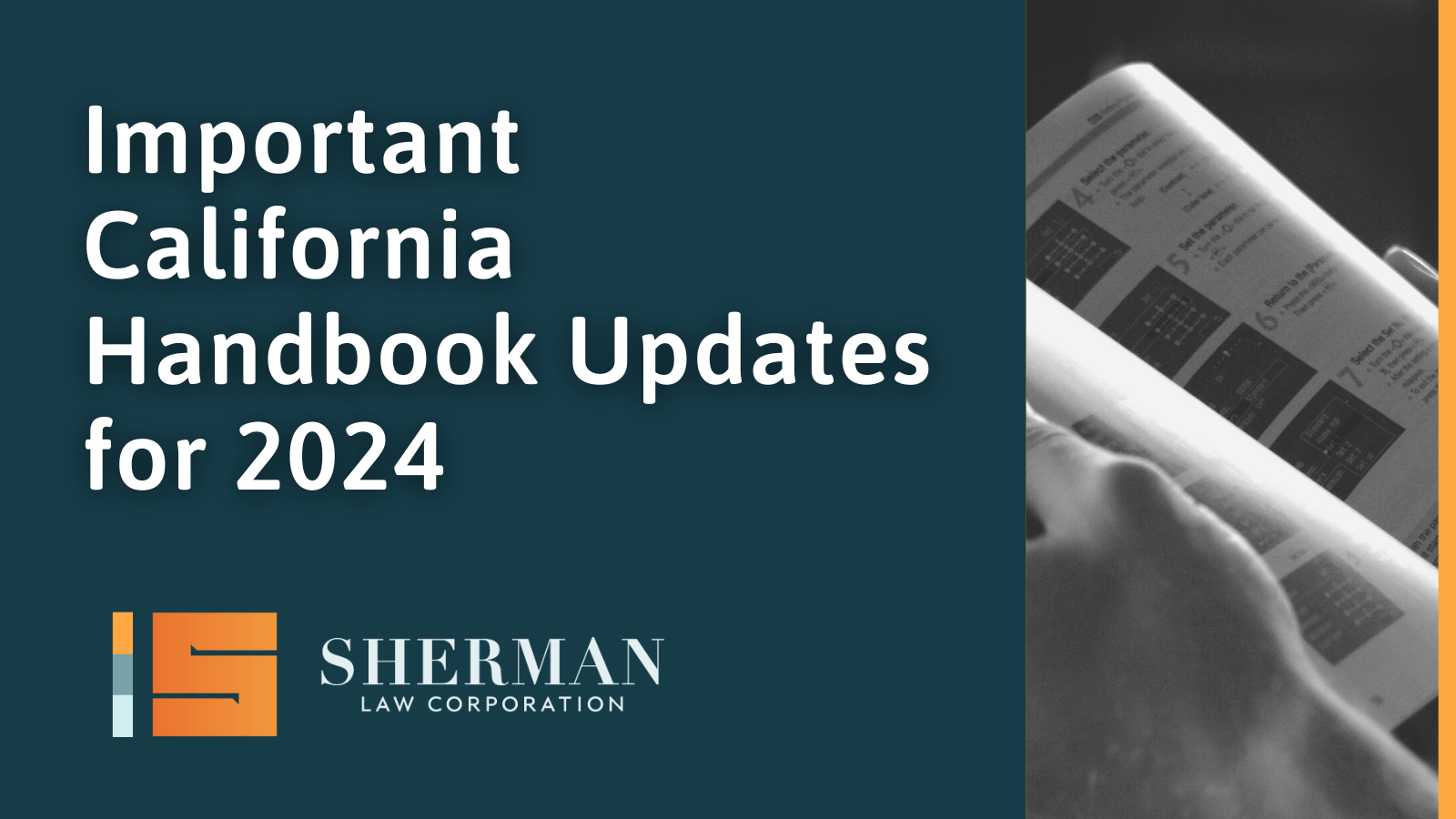
In the wake of the #MeToo movement, Governor Brown signed a number of California bills which have significantly expanded liability for sexual harassment in the workplace and employers’ obligations.
Sexual Harassment Prevention Training:
SB 1343, now requires California employers regularly employing five or more persons to provide two hours of sexual harassment training to its supervisors and one hour of sexual harassment training to all other employees no later than January 1, 2020 and every two years thereafter.
Sexual Harassment Omnibus Bill:
SB 1300 significantly amended the Fair Employment and Housing Act (“FEHA”), the California law that prohibits sexual harassment in the workplace as follows:
- Actionable harassment need only make it more difficult to do the job. Harassment creates a hostile work environment when it “disrupt[s] the victim’s emotional tranquility in the workplace, affect[s] the victim’s ability to perform the job as usual, or otherwise interfere[s] with and undermine[s] the victim’s personal sense of well-being.”
- A single incident of harassment is now sufficient to create a triable issue regarding the existence of a hostile work environment if the harassing conduct has unreasonably interfered with the plaintiff’s work performance or created an intimidating, hostile or offensive working environment.
- “The existence of a hostile work environment is based on the totality of the circumstances and a single discriminatory remark may be relevant evidence of discrimination.”
- The legal standard for harassment should not vary by type of workplace. “[C]ourts should only consider the nature of the workplace when engaging in or witnessing prurient conduct and commentary is integral to the performance of the job duties.”
- Harassment cases are rarely appropriate for summary judgment (a dispositive motion filed by the defendants to dismiss the entire action on the ground that the plaintiff cannot state a claim for unlawful harassment as a matter of law).?
In addition to these legislative declarations, SB 1300 also makes substantive amendments to prior law:
- Employers may not require employees to sign, in exchange for a raise or bonus or as a condition of employment: (1) a release of FEHA claims or (2) documents prohibiting disclosure of unlawful actions in the workplace including, non-disparagement agreements. This provision does not apply to negotiated settlement agreements.
- Prevailing defendants will not be awarded attorneys’ fees and costs in FEHA litigation, unless the court finds the action was frivolous, unreasonable or groundless when brought or that the plaintiff continued to litigate after it clearly became so.
- Employers may, but are not required to, provide “bystander intervention training” to employees, which includes information and practical guidance on how to recognize potentially problematic behaviors and motivate bystanders to take action when they observe problematic behaviors. See, Cal. Gov’t Code Sections 12940, 12965, 12923, 12950.2 and 12964.5.
Restrictions on Confidential Sexual Harassment Settlement Agreements:
SB 820 prohibits settlement agreements from including provisions that prevent disclosure of factual information related to a clam of sexual assault, sexual harassment, sex discrimination, or retaliation which is filed in a civil or administrative action. The agreement may preclude disclosure of the amount paid in settlement. SB 820 allows claimants’ identities, and facts that could reveal their identities to be protected if the claimant requests anonymity, except if a government agency or public official is a party to the settlement agreement. See, Cal. Code of Civ. Proc. Sec. 1001.
Ban on Waivers of Right to Testify about Alleged Sexual Harassment or Criminal Conduct:
AB 3109 provides that any contract or settlement agreement provision that waives a party’s right to testify in an administrative, legislative, or judicial proceeding concerning alleged criminal conduct or sexual harassment is unenforceable. See, Cal. Civ. Code Sec. 1670.11.
Expanded Liability for Sexual Harassment in Business, Service or Professional Relationships:
Under SB 224, “investors, elected officials, lobbyists, directors and producers” have been added to the list of persons who may be held personally liable for sexual harassment in “business, service or professional” relationships.” See, Cal. Civ. Code Sec. 51.9; Gov’t Code Sections 12930, 12948.
Take-Away for California Employers:
Now that the legislature has endorsed that a single discriminatory remark or incident may create a triable issue of fact regarding the existence of a hostile work environment, it will be far harder for employers to seek dismissal of these claims through dispositive motions for summary judgment. The sheer costs of defending such claims coupled with the threat of having to pay attorneys’ fees if the plaintiff prevails on a sexual harassment claim will cause employers to settle far more of these weak cases that are based on a stray remark or incident.




